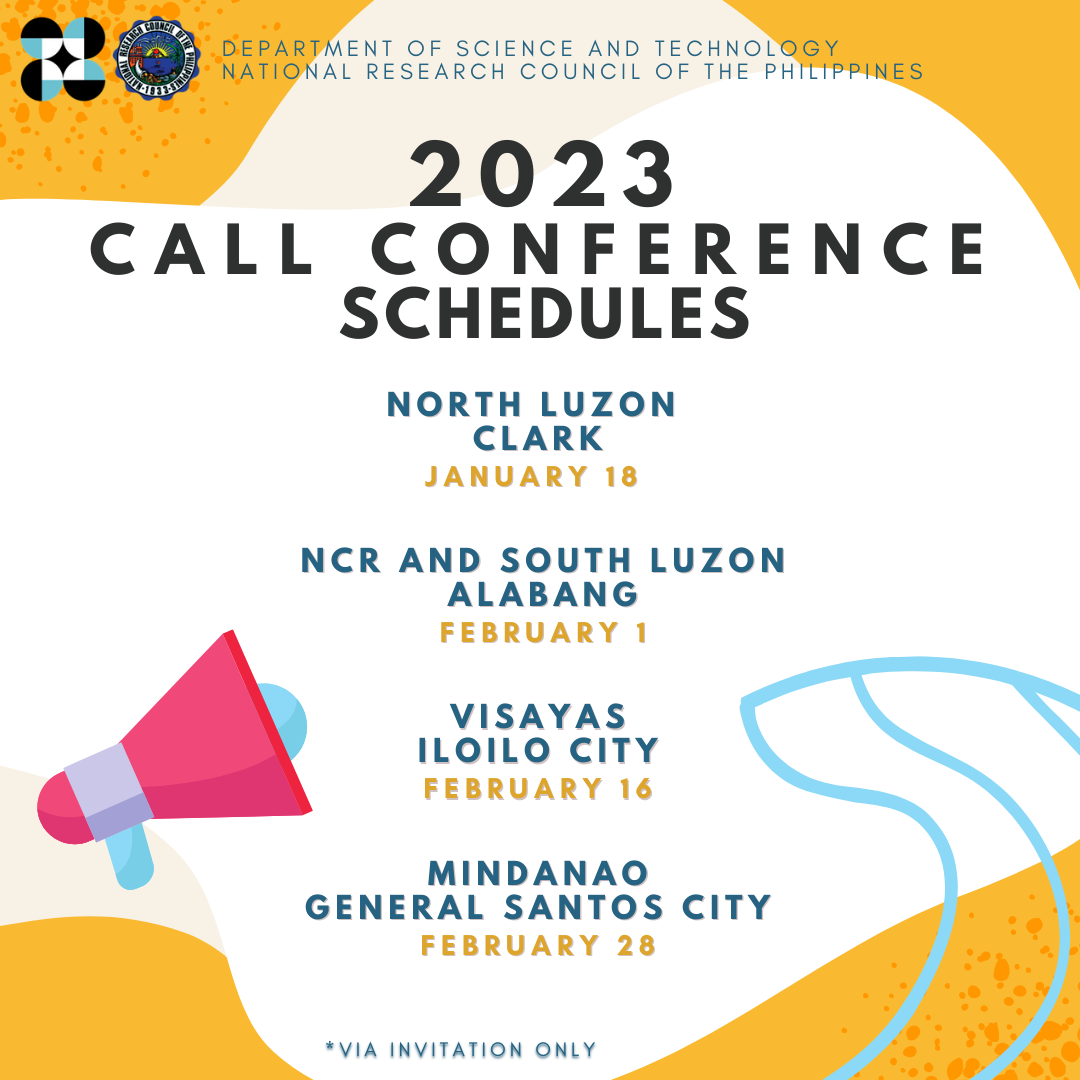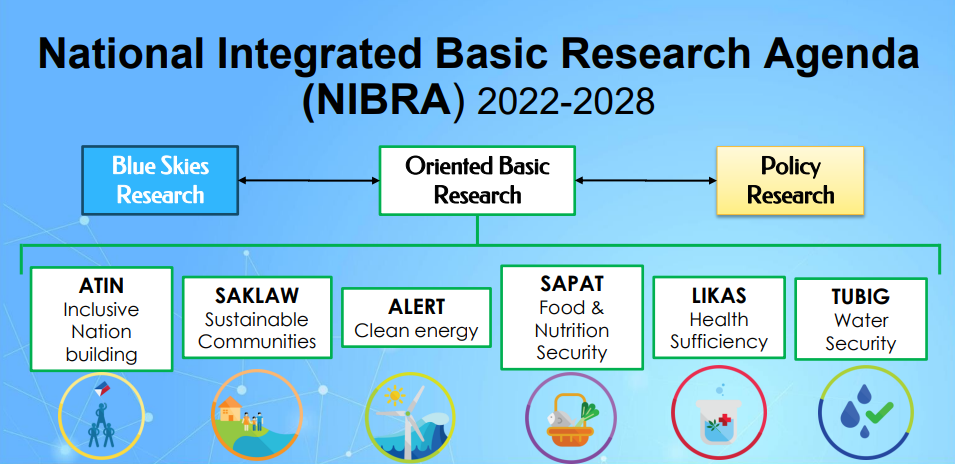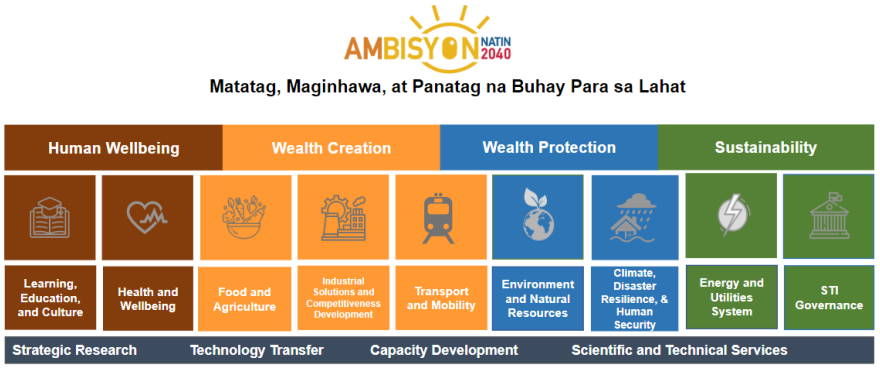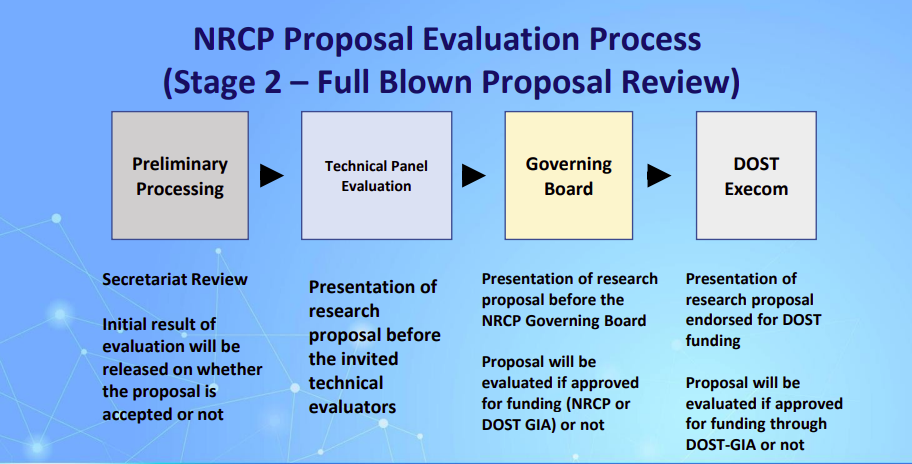What is NRCP's Call for Proposals?
This is a scheduled activity held in support of NRCP's commitment to promote frontier and problem-oriented researches in the sciences and humanities that provide solutions to pressing and national issues through its grants-in-aid (GIA) program.
This will serve as an opportunity for submission of quality proposals for funding support of the Council. Guidelines and priority research areas for funding are announced through this activity.
Please refer to this link https://basicresearch.nrcp.dost.gov.ph/callforproposals for the complete information about NRCP’s Call for Proposal Guidelines and Priority Research Areas.
What is the NRCP Grants-in-Aid (GIA) Program?
The NRCP GIA is a research funding window that is open to NRCP members whose proposals are aligned with National Integrated Basic Research Agenda (NIBRA) and have passed the NRCP proposal review process.
How can I avail of the research grant?
The researcher must submit a CONCEPT proposal on a topic aligned with the NRCP Guidelines on the Call for Proposals.
Submitted concept proposal must passed the screening process to be notified by the Council for submission of full-blown proposal.
Who can avail of the research grant?
Principal investigator/ researcher should adhere to the following:
- Must be a Filipino citizen, subject to applicable laws;
- Shall submit documents/proof of the following, which shall include but not limited to: credentials/proof of capability; certificate of employment; track record; and endorsement of his/her institution. Eligibility shall be determined based on his/her readiness in terms of technical, managerial, financial and marketing capabilities (if necessary);
- Must hold a regular plantilla position; will not retire from work in 3 years’ time.
- Must be a member* of the National Research Council of the Philippines (NRCP). - *GB approved membership
- Must not have any existing accountability with DOST and its agencies particularly technical and financial reports; and
- Must not have been found guilty of administrative or criminal case, including those under appeal.
When is the submission of the proposal?
For Concept Proposal:
The submission of research CONCEPT proposals is from March 01 – 15, 2025 through email: basicresearch@nrcp.dost.gov.ph (cc: gia@dost.gov.ph)
Where can I submit my proposal?
For Concept Proposal:
The submission of research CONCEPT proposal is through email: basicresearch@nrcp.dost.gov.ph (cc: gia@dost.gov.ph)
For full-blown proposal:
All proposals must be inputted/submitted via the DOST Project Management Information System (DPMIS) Portal following the set schedule for submission which is from April 5 - May 15, 2025 only.
As a researcher, you must register and create a profile on the said portal in order to submit a proposal. Visit https://dpmis.dost.gov.ph/ for more information.
What is/are the form/s I need to submit?
What are the requirements I need to comply with in order to submit a proposal to NRCP?
In submitting a proposal, the researcher must adhere to the following guidelines
General Criteria:
- Project/Program proposals must be aligned to issue-based programs under the National Integrated Research Agenda (NIBRA) under the DOST Harmonized National R&D Agenda
- Project/Program proposals must be gender-sensitive or with GAD component.
- Project Leader must be a member of NRCP
- With application form and Curriculum Vitae of the project leader
- Endorsement from institution (President or Vice President of R&D)
- The program or project leader has no outstanding obligations (i.e., technical and/or financial) with NRCP or with any other attached DOST agencies
I am not an NRCP member, can I still submit a proposal for funding?
NRCP Grants-in-Aid is solely for NRCP member. Membership application has to be at least approved by the NRCP Governing Board.
Kindly secure approval of any application for NRCP membership prior to the submission of a research proposal.
Proposals submitted by non-NRCP members will not be processed/ considered for funding of the Council.
What are the priority research areas for funding under Call for Proposals?
Proposals must be aligned with the priority areas/programs under the National Integrated Basic Research Agenda (NIBRA), 2022-2028 of the existing Harmonized National Research and Development Agenda (HNRDA). Proposal may be a blue skies or pure basic research, or an oriented basic, or policy research.
Proposals that forge linkages between the government particularly local government units (LGUs), academe, industry sector, and civil
society; and most importantly projects that will ensure translation and transfer of social technologies to the people and various publics will
be prioritized for funding.
Please refer to this link,
https://basicresearch.nrcp.dost.gov.ph/callforproposals for the complete information about NRCP’s Call for Proposal Guidelines and Priority Research Areas.
What kind of proposal should be submitted to qualify for the grant?
Proposal may be a “blue skies” or pure basic research or an “oriented basic” research.
Multi-year program proposals under priority NIBRA are encouraged and preferred.
Please refer to this link,
https://basicresearch.nrcp.dost.gov.ph/callforproposals or the complete information about NRCP’s Call for Proposal 2023 Guidelines and Priority Resarch Areas.
What is a “Pure Basic” or Blue Skies research?
Pure Basic Research, also referred to as Blue Skies research, refers to fundamental research in the sciences and the humanities which have no impact or perceived practical use. These may be purely theoretical in
scope and heralding disciplinal advances and pioneering works/discoveries.
It is a curiosity – driven basic research whose outcome is not anticipated in the beginning. Hence, the original motivation to address the question “Why is the sky blue?” was due to the interest on the observed physical
phenomena itself rather than deriving any benefit from the answer. By definition, this type of research implies that the researcher is given free hand to set his/her own agenda. The aim is mainly to solve a
fundamental unique problem without a specific target in mind.
What is an “oriented basic research?”
This covers research which seek new knowledge required for application purposes but which may of course contribute to general scientific advancement in the process.
What kind of proposal should be submitted to qualify for the grant?
Proposal may be a blue skies or pure basic research or an oriented basic research.
Multi-year program proposals under priority NIBRA are encouraged and preferred.
Please refer to this link,
https://basicresearch.nrcp.dost.gov.ph/callforproposals for the complete information about NRCP’s Call for Proposal Guidelines and Priority Research
Areas.
Is there a required number of years/ months for the duration of research?
No, but preferably, a program proposal and its component projects should be 2-3 years in duration.
Can I resubmit my previously drafted/ submitted proposal in DPMIS?
Yes, provided that it is in accordance with NRCP’s Call for Proposals Guidelines and priority areas.
For a previously submitted proposal, response to the result of initial evaluation has to be provided as supplemental documents.
Please be informed that NRCP has a new evaluation process where CONCEPT proposal has to be submitted and accepted by the Council prior to submission of a full-blown proposal to DPMIS.
Can I still submit a proposal even if I have an on-going research funded by the NRCP?
Yes. NRCP’s Call for Proposals is for the funding year 2027. Should you have ongoing research funded by the Council, you may still submit a proposal but the possibility of funding will depend on the satisfactory completion of your
previous research. The researcher must be cleared of any research obligations (both technical and financial) prior to consideration of another research grant of the Council.
The researcher must provide a list of all NRCP and/or DOST projects handled including the completion date and/or clearance from research obligation to support the claim.
Can I still submit a proposal even if I have an on-going research funded by the other Councils (e.g. DOST)?
Yes. NRCP’s Call for Proposals is for the funding year 2027. The researcher with ongoing research project/s funded by the other Council may still submit proposals for funding of NRCP
However, the researcher with existing accountability with DOST and its agencies, particularly technical and financial reports, will be disqualified for the NRCP-GIA.
Is there a cap/ maximum requirement for the proposed research budget?
NRCP-GIA financial assistance is up to Php 2,000,000 per year for Associate Member
For regular member, proposal amounting to maximum amount of PhP 10,000,000.00 per project (covering PS, MOOE and CO) will be considered under NRCP Grants-in-Aid program, otherwise, will be endorsed to DOST for possible
funding under DOST grants-in-aid.
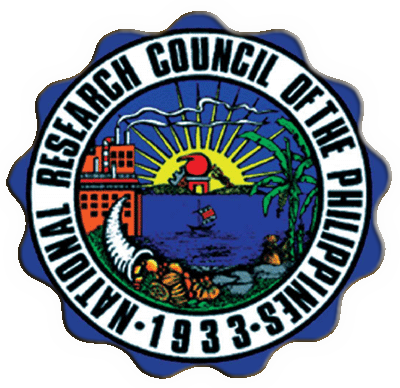 The National Research Council of the Philippines (NRCP) continuously provides assistance to relevant fundamental/basic research and policy research to push for breakthrough projects with socio-economic benefits for the people. This is to ensure that new knowledge and information are generated to strengthen governance through the fusion of science and the arts, technology and innovation, hence, increase productivity and ensure efficient processes in the delivery of research results for public good.
The National Research Council of the Philippines (NRCP) continuously provides assistance to relevant fundamental/basic research and policy research to push for breakthrough projects with socio-economic benefits for the people. This is to ensure that new knowledge and information are generated to strengthen governance through the fusion of science and the arts, technology and innovation, hence, increase productivity and ensure efficient processes in the delivery of research results for public good.